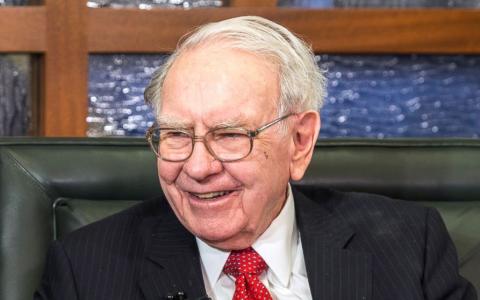
Billionaire investing legend Warren Buffett will hold court for hours at the Berkshire Hathaway shareholder meeting streamed live on Yahoo Finance on Saturday, answering dozens of questions from attendees watching virtually around the world.
Some of those questions will likely boil down to the same query: How do I invest as well as you do?
In a new interview, Robert Hagstrom — portfolio manager and author of many books on Buffett, including "Warren Buffett: Inside the Ultimate Money Mind" — says Buffett's investing success owes to his possession of two inextricably linked attributes: philosophy and method.
Buffett has enjoyed consistently strong returns over the decades because he combines a flexible method that responds to the market and a bedrock philosophy that grounds each of his decisions, said Hagstrom, the Chief Investment Officer and Senior Portfolio Manager at Equity Compass.
"Investing is really two distinct classes," Hagstrom says. "It is a philosophical bucket — that thinking bucket that then connects to the method."
"You can't be successful in your methods if you're not anchored well in the philosophical side," he adds. "What makes what Warren does successful is combining the philosophical with the methods, both of them working in tandem."
Since 1965, Buffett has built textile company Berkshire Hathaway into a giant holding company, along the way popularizing the strategy of “value investing,” which identifies stocks trading at a price lower than their book value, and patiently waits for them to rise.
Buffett has also exhibited deft decision-making when sudden market swings require it. In October 2008, the immediate aftermath of the worst financial crisis since the Great Depression, Buffett wrote in The New York Times, “Fears regarding the long-term prosperity of the nation’s many sound companies make no sense." He accurately predicted that most major companies would soon enough set new profit records.
To illustrate the mix of philosophy and method, Hagstrom pointed to Buffett's use of the phrase "money mind" during remarks at the Berkshire Hathaway shareholder meeting four years ago.
"I’ve known very bright people that do not have money minds, and they can make very unintelligent decisions," Buffett said. "They can do all kinds of other things that most mortals can’t do. But it just doesn’t, it isn’t the way their wiring works."
Today, Berkshire Hathaway owns over 60 companies, like Geico and Dairy Queen, plus minority stakes in Apple (AAPL), Coca-Cola (KO), among others. Buffett holds a net worth of $102.8 billion, and has vowed to give away nearly all of it.
Buffett learned his investment philosophy from his father, Howard Buffett, and his professor at Columbia University, Ben Graham, known as the father of value investing, Hagstrom said.
Over time, he developed a "money mind" that could pair that philosophy with an investing method, which he has since applied in a range of circumstances, said Hagstrom, who has closely examined Buffett for a quarter century.
"It's really fascinating and humbling that it took me 25 years to figure this part out," Hagstrom says. "But I think it's a critical variable."
He also acknowledged a third attribute rooted in Buffett's personality.
"What is probably one of the most important parts of being a successful investor is Warren is honest, and that's about temperament," Hagstrom says.
This article originally appeared on Yahoo! Finance.



